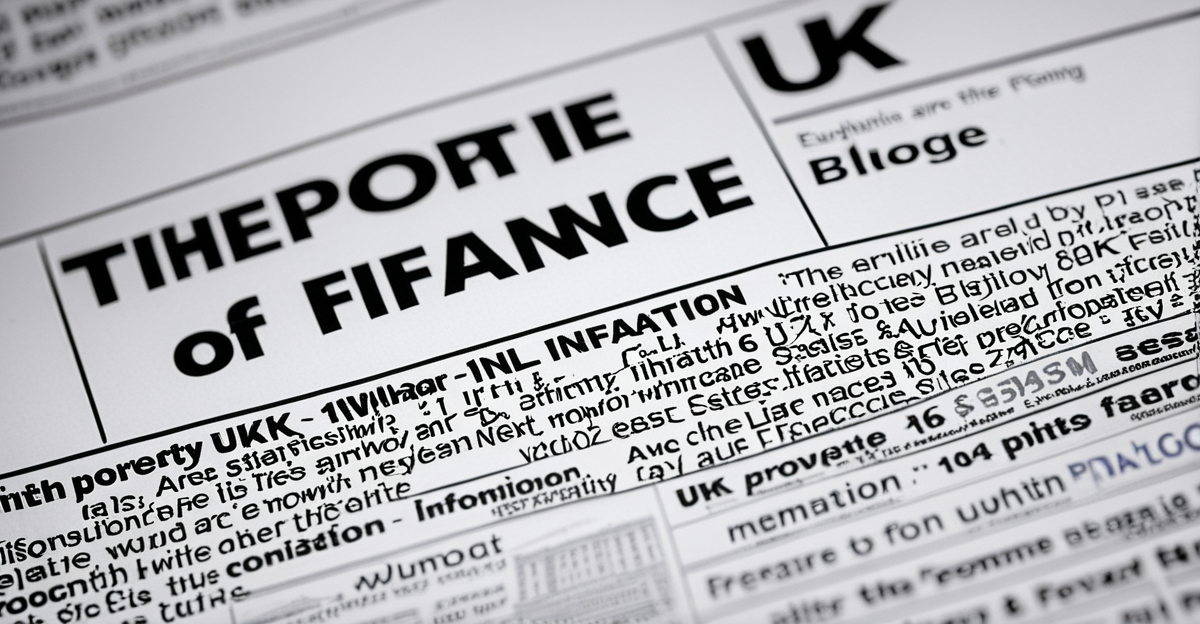Effects of Inflation on Borrowing Costs and Mortgage Rates
Understanding how inflation shapes finance terms in UK real estate
In the UK, rising inflation commonly prompts the Bank of England to adjust interest rates upward to manage economic stability. These rate changes directly affect borrowing costs, with increased interest rates leading to higher mortgage payments for borrowers. When inflation spikes, the Bank typically raises rates to curb spending, which makes borrowing more expensive.
Topic to read : How is the UK mortgage market evolving in response to economic changes?
Fixed-rate mortgages offer stability by locking in interest payments despite inflation fluctuations, benefiting borrowers who seek predictable costs. However, during inflationary periods, fixed rates often rise as lenders price in higher expected inflation. Conversely, variable mortgage rates fluctuate with the Bank’s base rate, exposing borrowers to increases in borrowing costs whenever inflation drives rate hikes.
Short-term borrowing costs tend to rise quickly with inflation-driven rate adjustments, impacting those seeking loans or remortgages soon after inflation climbs. Long-term borrowing costs may reflect market expectations for inflation over the mortgage period, sometimes lagging behind immediate rate changes. These dynamics mean that UK real estate finance is highly sensitive to inflation trends, influencing both lending practices and consumer affordability.
Also to discover : What Challenges Will the UK Real Estate Market Face in the Next Decade?
Effects of Inflation on Borrowing Costs and Mortgage Rates
Inflation directly influences borrowing costs through adjustments made by the Bank of England to interest rates. When UK inflation rises, the central bank often increases base rates to temper the economy, causing mortgage rates to climb. This tightening impacts both new and existing borrowers, raising the cost of credit.
For homeowners with fixed-rate mortgages, their payments remain stable despite inflation-driven rate shifts, providing budget certainty. Conversely, those with variable-rate mortgages typically see immediate increases in monthly repayments as their interest rates adjust with the Bank of England’s moves. This distinction is critical for borrowers planning their finances amid fluctuating UK inflation.
Short-term borrowing costs tend to fluctuate more noticeably in response to inflation and rate hikes, as lenders recalibrate risk premiums. Long-term borrowing costs might not rise as sharply, depending on market expectations of future inflation. However, an inflationary environment generally leads to increased long-term interest rates, pushing up overall mortgage expenses.
Understanding these dynamics helps prospective buyers and investors navigate real estate finance effectively, balancing inflation risks against borrowing needs and mortgage product choices.
Property Values and Inflation Dynamics
Understanding how inflation impact shapes property values in the UK real estate market reveals vital trends for buyers and investors. Inflation typically drives both residential and commercial property prices upward, as construction costs, land prices, and labor expenses rise. This pushes developers and owners to increase selling prices or rents to preserve profit margins, causing overall inflationary pressure on the housing market.
Historically, during high UK inflation periods, property values have shown resilience, often serving as a hedge. For example, in the late 1970s and early 1980s, when inflation surged, nominal home prices increased significantly, although real price growth adjusted for inflation varied. This tells us that while the face value of properties grows, actual purchasing power can fluctuate based on broader economic conditions.
Regional variations are crucial. High-demand urban centers like London often experience stronger inflation-induced price rises compared to less populous regions. Rural or economically weaker areas may lag, reflecting disparities in income growth and market activity. Awareness of these inflation-driven changes helps stakeholders anticipate shifts in UK real estate opportunities and risks more precisely, supporting informed decision-making.
Property Values and Inflation Dynamics
Exploring how inflation shapes house prices and commercial real estate in the UK
Inflation considerably influences property values in the UK real estate market by altering demand, construction costs, and investor behaviour. During periods of rising UK inflation, both residential and commercial property prices often increase. This happens because inflation raises the replacement cost of properties, pushing up market prices to maintain real estate asset value.
Historically, UK property values have shown resilience amid moderate inflation, with values generally rising to keep pace with or outstrip inflation. For example, in past inflationary cycles, residential prices increased as buyers sought real assets to protect wealth. Conversely, very high or unpredictable inflation can create uncertainty that tempers price growth.
Regional variations are significant. Urban centres like London often experience stronger inflation impact on property values due to high demand and limited supply, whereas some rural areas may see slower price appreciation. Additionally, inflation can widen the gap between prime locations and less sought-after areas as investors prioritise inflation-hedging assets.
Understanding inflation impact on property values helps investors and homeowners adjust strategies to navigate the evolving UK housing market safely.
Effects of Inflation on Borrowing Costs and Mortgage Rates
Inflation drives the Bank of England to adjust its base interest rates, which directly influences borrowing costs and mortgage rates in the UK. When UK inflation rises, the Bank tends to increase rates to contain price pressure, resulting in higher mortgage repayments for borrowers. This relationship means that inflation acts as a key trigger for fluctuations in real estate finance expenses.
Fixed-rate mortgage holders benefit from stable payments despite inflation-driven rate hikes, as their rates are locked for the agreed term. However, lenders often set higher fixed rates anticipating future inflation, making new fixed deals more costly during inflationary periods. In contrast, variable-rate mortgages respond immediately to changes in the Bank’s rates, increasing monthly costs in step with inflation.
Short-term borrowing expenses tend to rise sharply as lenders quickly adjust for immediate inflation risks. Meanwhile, long-term borrowing costs incorporate market expectations of inflation over the mortgage’s duration, sometimes softening sudden rate surges but generally trending upward. Understanding these distinctions helps borrowers choose mortgage types aligned with their inflation exposure tolerance and financial planning within UK real estate finance.
Effects of Inflation on Borrowing Costs and Mortgage Rates
Inflation in the UK prompts the Bank of England to adjust interest rates, directly influencing mortgage rates and borrowing costs within real estate finance. When UK inflation rises, the Bank typically increases its base rate to control spending, resulting in higher borrowing expenses.
Fixed-rate mortgages offer payment stability by locking in rates despite inflation fluctuations, but these rates generally increase at the outset during inflationary periods as lenders anticipate higher costs. On the other hand, variable-rate mortgages adjust more frequently to the Bank’s base rate changes, causing borrowers to experience immediate shifts in their monthly mortgage costs aligned with inflation trends.
Short-term borrowing costs react swiftly to inflation-induced interest rate hikes, affecting remortgaging and new loan approvals rapidly. Conversely, long-term borrowing expenses incorporate inflation expectations over time, which can moderate sudden increases but tend to trend upward during prolonged inflation. This nuanced difference influences the affordability and strategic choice of mortgage products, playing a critical role in UK real estate finance decision-making under inflationary pressure.











